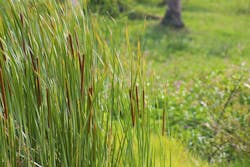Growing switchgrass for biofuel can improve water quality
WASHINGTON — Jan. 27, 2016 — Growing more switchgrass in certain areas could have a positive impact on water quality, as well as provide more feedstock for the production of cellulosic biomass, according to a press release.
Argonne National Laboratory recently released a study funded by the U.S. Department of Energy’s Bioenergy Technologies Office (BETO) which examines the potential effects of future biofuel production on freshwater resources in the Missouri River Basin.
The study identified four areas that could be associated with increased feedstock production, and demonstrated that increasing the amount of switchgrass acreage in these areas could significantly improve water quality, noted the release.
Researchers used the Soil and Water Assessment Tool, a modeling tool developed by the U.S. Department of Agriculture‘s Agricultural Research Service, to examine how water quality (nutrient and sediment loading) and flow would be affected by increases in feedstock production estimated by BETO’s Billion Ton Update, stated the release.
According to the Department of Energy, the findings can support decision making at an early stage of the biofuel industry’s development and enhance the environmental sustainability of feedstock production.
Future studies will build on this work by evaluating how management practices influence water quality, agriculture production and feedstock production in an integrated landscape, reported the release.
BETO works with industrial, academic, agricultural and nonprofit partners across the United States to develop and demonstrate commercially viable, high-performance biofuels, bioproducts and biopower made from renewable, U.S. biomass resources, said the release. Its sustainability work includes assessing water resource use and water quality impacts of bioenergy production.
You can find the entire release here.
